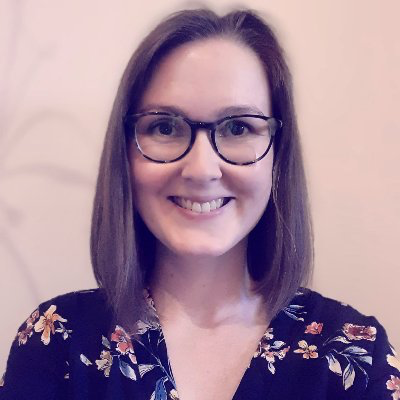Truth: What Is It Good For? Absolutely Something

By Rachel Handley

[Painting: Rachel Handley]
You walk into your living room to find your friends, Anne and Bob, talking about whether euthanasia is morally right or wrong. Their conversation starts in a friendly way, but when Bob claims that his view is “clearly true” Anne rolls her eyes and tells him why his view isn’t true. Anne claims that Bob’s view about euthanasia is not only not obviously true, it is not true at all. She gives a counterexample, and Bob gives his reply. Eventually their argument stops, they both sense they are going in circles. Bob turns to you and asks which view you think is true. You tell them that they need to answer another question first. Anne and Bob sigh and don the well-worn expressions of people who have a philosopher for a friend.
“What’s your question?” asks Anne.
“Well” you say “what do you mean by ‘is true’?”
It may seem puzzling to raise a question about truth amid an argument about euthanasia. Such a question is abstract in nature, whereas Anne and Bob’s discussion is concrete; they are concerned with what we ought to do. Nevertheless, Anne and Bob both claim that each of their views about euthanasia are true and this, you tell them, could imply a number of things about what truth is and in turn, how truth is linked to what we mean when we say something is morally wrong.
You explain that Bob might think moral wrongness is mind-independent; for him, whether euthanasia is morally wrong has absolutely nothing to do with his beliefs or desires, it simply is a moral fact that euthanasia is morally wrong. There would be no change to whether euthanasia is morally wrong if Bob suddenly disappeared from the earth. His view of moral truth is connected to his view about moral facts. Truth, for Bob, refers to a moral fact of the matter. Similarly, empirical truth for Bob is connected to empirical facts. X is true, for him, if X is in line with the facts. Anne might not think there are any moral facts of the matter, but that, nevertheless, her view is true. It’s true because she believes it to be so.
Truth, a concept we use regularly in our daily language with one another, a concept we think we understand when someone claims truth about something, is starting to look rather difficult to pin down.
Should we worry? Thankfully not! In swoops philosophy to save the day (from philosophy).
In a delightful and sharp exchange, Strawson and Evans try to figure out what truth is. Given the above, their task appears to be an intimidating one, but Strawson and Evans take their task to be fairly simple, because, they claim, truth and what it is, is also fairly simple.
They take their inspiration for their discussion from Frank Ramsey’s conception of truth, where uttering “p is true” is nothing over and above uttering p. In short, for Ramsey, the predicate “is true” doesn’t add anything substantial to your uttering p; saying p “is true” doesn’t add some sort of strange metaphysical force to your utterance, p is true, if and only if p, and that’s the end of it. The substantial work comes in when we try to decide what p stands for and if we really are entitled to assert p. Truth itself, however, is simply another way to express p and because of this there isn’t much to say about it.
Let’s return to Bob and Anne’s argument. You explain Ramsey’s theory of truth and Bob asks you why Ramsey’s view about truth matters. He doesn’t see what it has to do with his argument about euthanasia. He is talking about morality, says Bob, so what has truth got to do with it? You remind him that he claimed that his view about euthanasia was true, and what he means by truth is important for understanding what he means by “it’s true that euthanasia is morally wrong”.
If Ramsey is right, then when Bob utters “it’s true that euthanasia is wrong” he is not saying anything other than “euthanasia is morally wrong”. But it seems as if Bob does take “is true” to be adding something. Suppose, in light of your explanation of truth according to Ramsey, Bob claims that “is true” does add something substantial; it adds authority to his claim. He asks you to remember something from earlier that day:
Bob: don’t touch the door!
You: why?
Bob: because there’s wet paint on it!
You look doubtful. In response Bob says “it’s true! It really is covered in wet paint!”
Whence the added authority? We might think that “it’s true” is intended to give Bob’s utterance more authority than simply saying “the door is covered in wet paint” because it indicates that Bob is being sincere about the wet paint. His sincerity suggests that the door really is covered in a fresh coat of paint. It is a fact that there is wet paint on the door. Whether it’s true that the door has fresh paint on it or not matters because if you ignore Bob, and he is sincere, you’ll get paint on yourself. We might, on this example, extrapolate that truth applies to utterances about the world: It’s true that the door has wet paint on it because the door really does have wet paint on it.
We may wonder whether “is true” applies in the same way as above to different types of discourse; that is, whether our moral discourse employs the concept of truth in the same way our discourse about the painted door does. An important point to note, and Strawson and Evans highlight this too, is that we are looking for a unified concept of truth. One which allows for us to talk about the same concept across domains. Ramsey’s view seems to allow us to do this, but someone like Bob might object that there is more to truth. He might demand a more robust explanation for the concept of moral truth, but not of aesthetic truth. Anne might argue that moral truth is nothing like empirical truth, and so demand that we need two concepts of truth (at least).
Such a demand can only be met by another article. So I will leave the puzzle of what truth is here and ask one final question: is what I’ve said above true?

About the Author
Dr Rachel Handley is an Honorary Research Fellow at the University of
Liverpool and from September she will be a Lecturer in Philosophy at
Code University of Applied Sciences in Berlin. She primarily works on
metaethics, moral psychology, moral epistemology, and metaphilosophy.
Alongside metaethics she also has research interests in the philosophy
of disability and the intersection between philosophy and fiction.
When she isn’t writing philosophy she can usually be found writing
science fiction or painting.